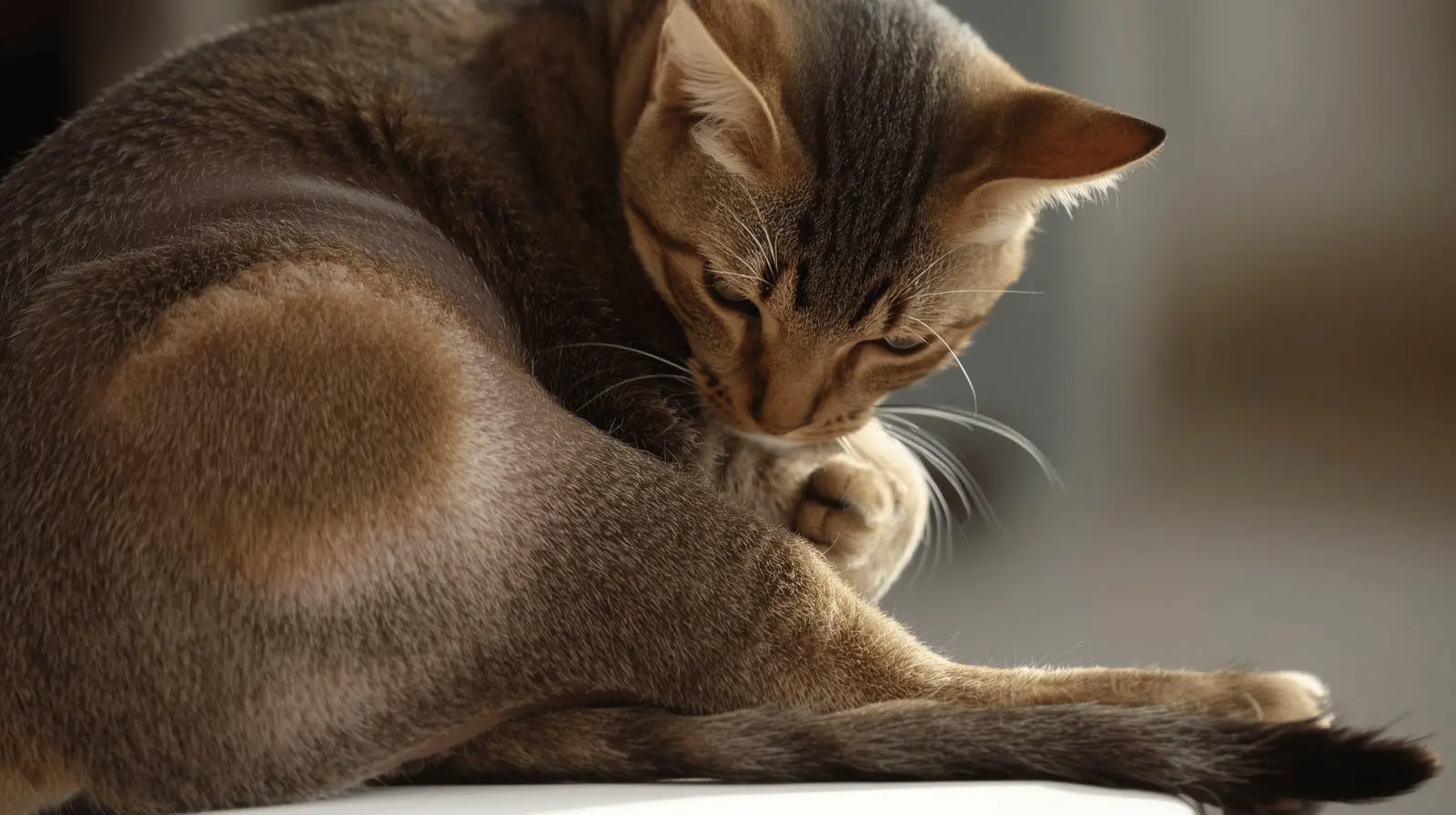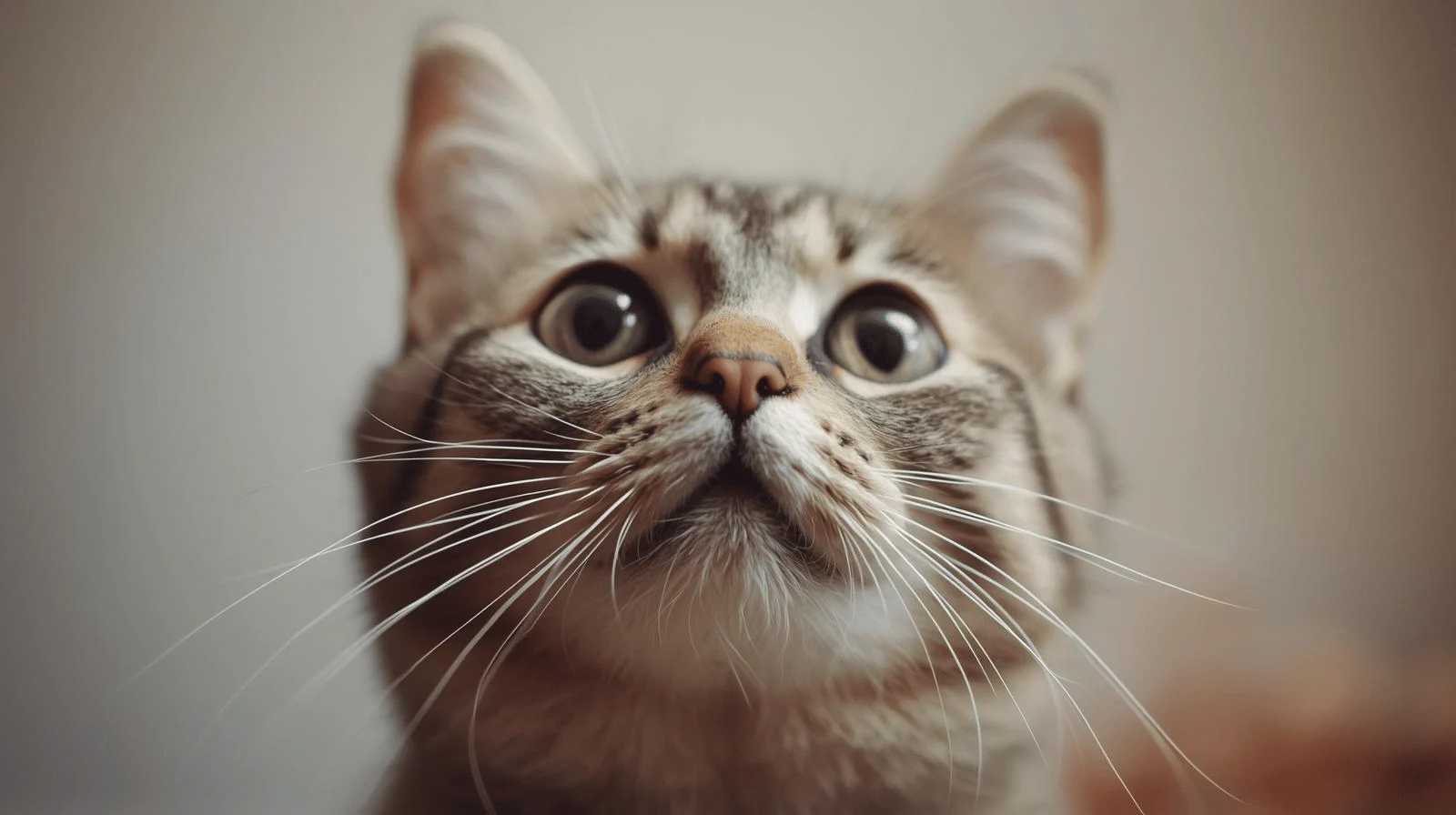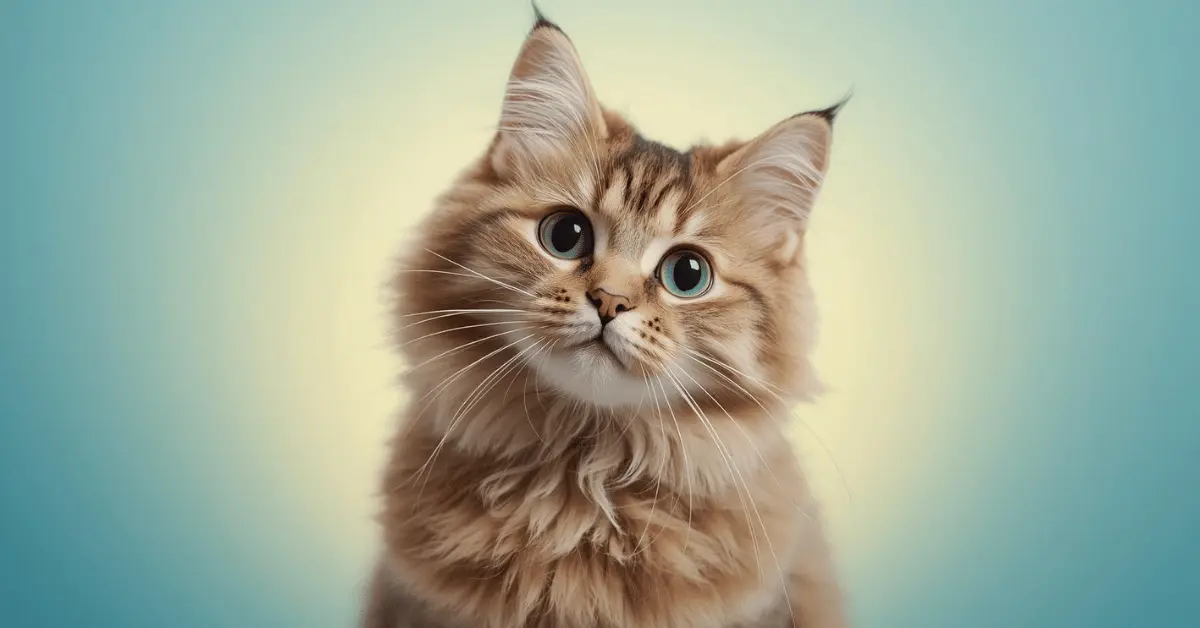Cats are well-known for their quirks — from zooming around the house at 3 a.m. to squeezing themselves into the tiniest boxes. Most of the time, these behaviours are just part of their charm.
As a responsible cat parent, it’s important to learn the difference between harmless quirks and warning signs.
🐱 Cat Health Red Flags: Key Behaviours
- Excessive meowing may signal pain, illness, or anxiety.
- Head pressing against walls is a serious medical emergency.
- Overgrooming often points to allergies, parasites, or stress.
- Chattering at nothing can mean dental issues or neurological concerns.
- Litter box avoidance is often linked to health problems or stress.
- Blank staring may be harmless curiosity or a sign of vision/neurological issues.
- Extreme hiding usually means your cat feels unwell or emotionally distressed.
👉 If your cat shows any of these unusual habits, don’t wait — a vet check-up could make all the difference.
1. Sudden Excessive Vocalization
Cats communicate with us through meows, chirps, and even trills. But if your usually quiet cat suddenly starts vocalizing constantly, it’s time to pay attention.
Why Is My Cat Meowing So Much?
- Medical concerns: Conditions like hyperthyroidism, kidney disease, or high blood pressure can make cats more vocal.
- Pain or discomfort: Cats sometimes meow when they’re hurting.
- Stress or anxiety: A move, new pet, or loud noises can trigger meowing outbursts.
What Cat Owners Can Do
If your cat’s voice suddenly changes in pitch or frequency, or they’re meowing through the night, schedule a vet visit. In the meantime, keep their environment calm and stick to a routine — cats thrive on consistency.
2. Head Pressing Against Walls or Objects
While gentle head-butting is a sign of affection, rigid head pressing against walls or furniture is a serious red flag.
Why Head Pressing Is Dangerous
- Neurological disorders such as brain tumors, stroke, or trauma
- Liver disease, which can lead to toxin buildup in the brain
- Severe infections affecting the nervous system
Immediate Action Required
Unlike quirky cat habits, head pressing is never normal. If you see your cat doing this, get to a vet right away. This behaviour often points to serious medical emergencies.
Read Also
- Why Cats Suddenly Zoom Around at 3 AM
- 7 Ways Cats React to Spiritual Energy
- 7 Weird Cat Behaviours After Eating Explained
- 7 Strange Cat Senses Explained by Science
- Can Cats Eat Catnip? Benefits, Risks, and Safe Usage
3. Obsessive Licking or Overgrooming

Cats are naturally clean animals, but when licking becomes excessive, it’s often a sign of discomfort.
Possible Triggers for Overgrooming
- Allergies: Food or environmental allergens can irritate the skin.
- Parasites: Fleas and mites may cause intense itching.
- Stress and boredom: Some cats groom excessively as a coping mechanism.
How to Help Your Cat Stop Overgrooming
Check for fleas or skin irritation first. If bald patches or sores appear, your vet may recommend allergy testing or medication. Providing scratching posts, puzzle feeders, and playtime can also redirect anxious energy away from overgrooming.
4. Chattering at Nothing
We often see cats chatter when watching birds or squirrels from the window — an instinctive response to prey they can’t catch. But what if they chatter at seemingly nothing?
Interpreting Mysterious Cat Chattering
- Predatory instincts misfiring without visible stimulus
- Dental issues like tooth pain or jaw problems
- Neurological conditions in rare cases
When to Worry
Occasional chattering isn’t usually dangerous, but if it’s frequent and accompanied by drooling, pawing at the mouth, or refusing food, it could point to dental pain. Book a dental exam with your vet.
5. Ignoring the Litter Box
One of the most frustrating cat behaviours is when they suddenly stop using the litter box. But it’s rarely just “bad behaviour.”
Why Cats Refuse the Litter Box
- Medical issues: Urinary tract infections, bladder stones, or constipation
- Dirty litter box: Cats are clean creatures and avoid unkept boxes
- Stress or territorial disputes: Multi-cat households may create litter box conflicts
Solutions for Litter Box Problems
Keep boxes scooped daily, place them in quiet, accessible locations, and ensure you have one box per cat plus one extra. If your cat suddenly urinates outside the box, don’t scold them — it may be their way of saying, “Something is wrong.”
6. Staring Blankly into Space

Cats love to watch their surroundings, but prolonged blank stares can sometimes be a red flag.
What Cat Staring Might Mean
- Seizures or neurological issues: Some cats experience “absence seizures.”
- Vision loss: Retinal disease or hypertension can cause unusual staring.
- Age-related confusion: Senior cats may develop feline cognitive dysfunction.
When to See a Vet
Occasional daydreaming is harmless, but if staring is paired with head tilting, circling, or confusion, it may indicate something serious. Early diagnosis can improve quality of life for cats with neurological or vision problems.
7. Extreme Hiding or Withdrawal
Cats enjoy privacy, but sudden isolation is often a sign of distress.
Why Cats Hide More Than Usual
- Illness or pain: Instinct drives cats to hide when they feel weak.
- Stress: Changes at home, new pets, or loud environments can cause withdrawal.
- Depression: Cats can experience emotional decline after major changes or loss.
How to Help a Withdrawn Cat
Create safe spaces, offer gentle reassurance, and monitor their eating and litter habits. If hiding is paired with weight loss, lethargy, or changes in appetite, it’s time for a vet visit.
Preventing Weird Cat Behaviours Before They Escalate
Many strange feline habits can be minimized with proactive care.
Steps Every Cat Owner Should Take
- Schedule regular vet check-ups for early detection of health issues.
- Keep your cat mentally stimulated with toys, scratching posts, and window perches.
- Maintain a clean and predictable home environment.
- Watch for sudden changes in behaviour, which often signal the start of a problem.
By catching these signs early, you’ll not only protect your cat’s health but also strengthen your bond with them.
Final Thoughts: Listen to What Your Cat Is Telling You
Cats may not speak our language, but their behaviours are powerful signals. From excessive meowing to head pressing or hiding, these unusual habits shouldn’t be brushed off as quirks. They could be your cat’s way of telling you something is wrong.
For more trusted resources on feline health, visit the Cornell Feline Health Centre.
Frequently Asked Questions
Why does my cat chatter at nothing?
Cats usually chatter when hunting instincts kick in, but if there’s no prey around, it could signal dental pain or a neurological issue.
Is it normal for cats to stare into space?
Occasional staring is normal curiosity, but frequent blank stares may point to vision problems, seizures, or age-related confusion.
Why has my cat stopped using the litter box?
Litter box avoidance often signals medical issues like UTIs or stress from changes at home, so a vet visit is the first step.
What does it mean if my cat meows all the time?
Excessive meowing can mean pain, illness, or anxiety, especially if your cat’s voice or routine suddenly changes.
Why does my cat lick itself so much?
Overgrooming may stem from allergies, parasites, or anxiety, especially if it causes bald patches or sores.

2 thoughts on “7 Weird Cat Behaviours You Shouldn’t Ignore (And What They Really Mean)”